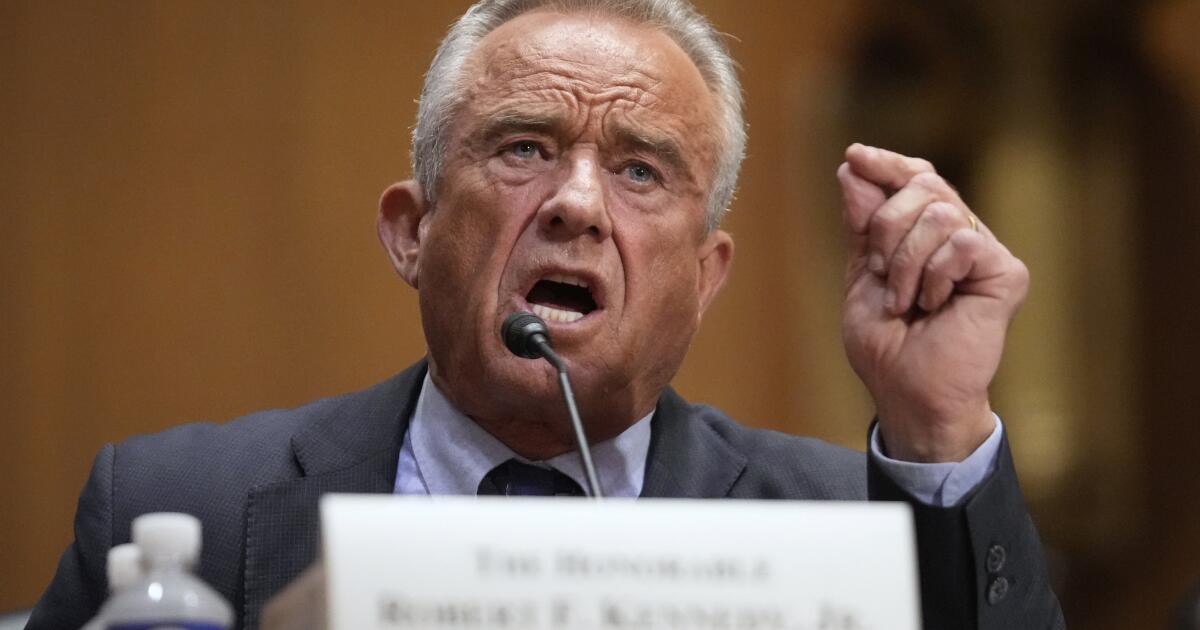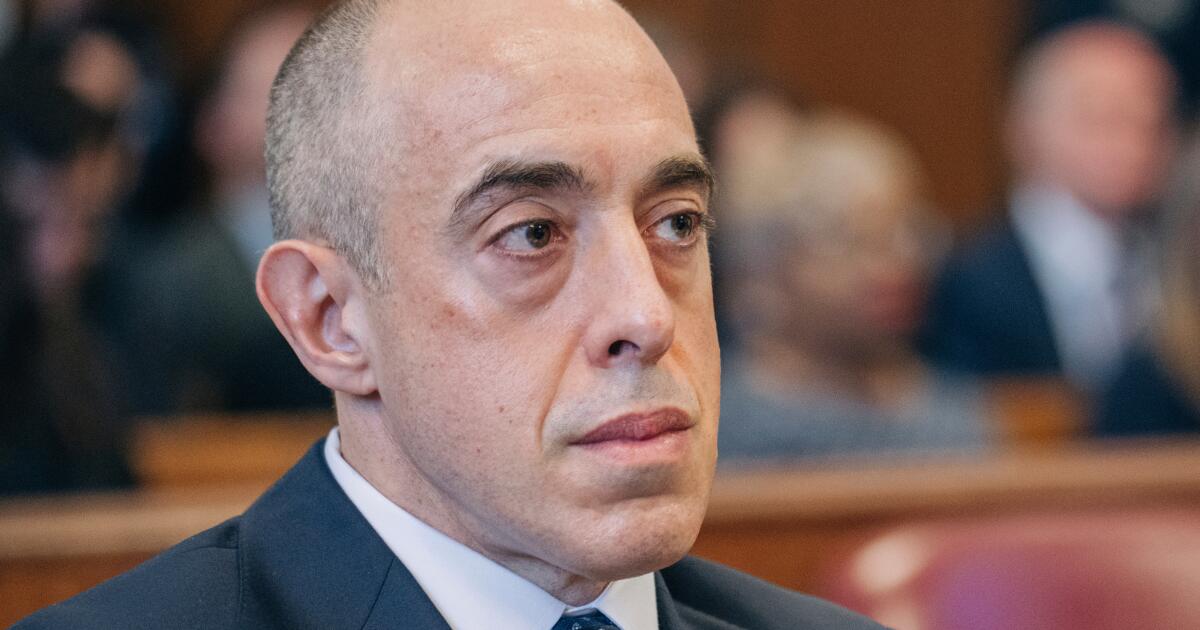Defiant RFK Jr. questions vaccine data, defends record under bipartisan Senate grilling
Robert F. Kennedy Jr., the nation’s health secretary and a longtime vaccine skeptic, struck a defiant tone Thursday as he faced bipartisan criticism over changes he has made to reorganize federal health agencies and vaccine policies, telling senators that he is determined to “eliminate politics from science.”
In the testy appearance before the Senate Finance Committee, Kennedy repeatedly defended his record in heated exchanges with senators from both parties and questioned data that show the effectiveness of vaccines. In turn, senators accused him of taking actions that contradict his promise seven months earlier that he would do “nothing that makes it difficult or discourages people from taking vaccines.”
“Secretary Kennedy, in your confirmation hearing you promised to uphold the highest standard for vaccines. Since then, I’ve grown deeply concerned,” Sen. John Barrasso of Wyoming, a top-ranking Senate Republican and a physician, said during the hearing.
Kennedy forcefully denied that he has limited access to vaccines and defended his record in restoring trust in federal healthcare agencies under the umbrella of the U.S. Department of Health and Human Services.
“They deserve the truth and that’s what we’re going to give them for the first time in the history of the agency,” Kennedy told senators.
From the outset, it was expected that Democrats would slam Kennedy’s record. Some of them called on him to resign and accused him of politicizing federal health policy decisions. But three other Republicans, including Sen. Bill Cassidy of Louisiana, who was key in advancing Kennedy’s nomination, joined Democrats in criticizing Kennedy’s actions, mostly pertaining to vaccine policy changes.
Thursday’s session marked a peak of bipartisan frustration over a string of controversial decisions by Kennedy that have thrown his department into disarray. Kennedy dismissed an entire advisory panel responsible for vaccine recommendations and replaced its members with known vaccine skeptics. He withdrew $500 million in funding earmarked for developing vaccines against respiratory viruses. And, just last week, he ousted the newly appointed director of the Centers for Disease Control and Prevention following disagreements over vaccine policy.
In an op-ed published in the Wall Street Journal on Thursday, Susan Monarez, the former CDC director, wrote that she was forced out after she declined to recommend people “who have publicly expressed antivaccine rhetoric” to an influential vaccine advisory panel.
At the hearing, Kennedy said Monarez was lying. Instead, he said he fired her because he asked her if she was trustworthy, and she told him, “no.”
He added that he fired all the members of the vaccine panel because it was “plagued with persistent conflicts of interest.”
“We depoliticized it and put great scientists on it from a very diverse group, very, very pro-vaccine,” he claimed.
In questioning, however, members of his own party questioned his support for vaccines. At one point, Cassidy, a physician, read an email from a physician friend who said patients 65 and older need a prescription to get a COVID-19 shot.
“I would say effectively we are denying people vaccines,” Cassidy said.
“You’re wrong,” Kennedy responded.
In that same exchange, Cassidy asked Kennedy if he believed President Trump deserved a Nobel Prize for his administration’s work on Operation Warp Speed, the initiative that sped the development of the COVID-19 vaccine and treatments.
“Absolutely,” Kennedy said.
Cassidy said he was surprised at his answer because he believes Kennedy is trying to restrict access to the COVID-19 vaccine. He also expressed dismay at Kennedy’s decision to cancel $500 million in contracts to develop vaccines using mRNA technology, which Cassidy said was key to the operation.
Kennedy’s position on vaccines have reverberated beyond Capitol Hill.
Ahead of the hearing, more than 1,000 employees at the health agency and national health organizations called on Kennedy to resign. Seemingly in support of Kennedy’s direction, Florida announced plans to become the first state to end all vaccines mandated, including for schoolchildren. And three Democratic-led states — California, Washington and Oregon — have created an alliance to counter turmoil within the federal public health agency.
The states said the focus of their health alliance will be on ensuring the public has access to credible information about the safety and efficacy of vaccines.
Almost as if in a parallel universe, Kennedy told senators on Thursday that his goal was to achieve the same thing, after facing hours of criticism on his vaccine policies.
“I am not going to sign on to something if I can’t make it with scientific certainty,” he said. “It doesn’t mean I am antivax, it just means I am pro-science.”

